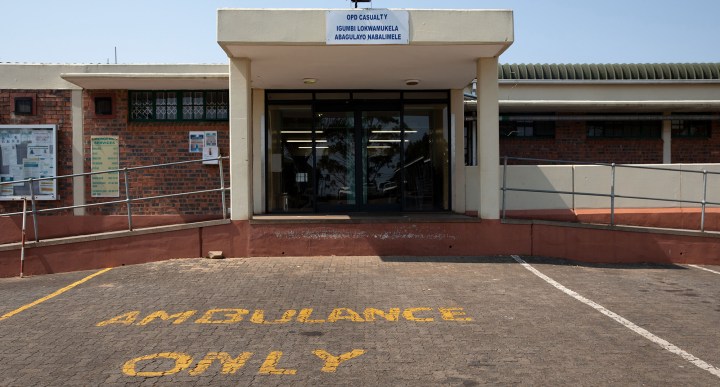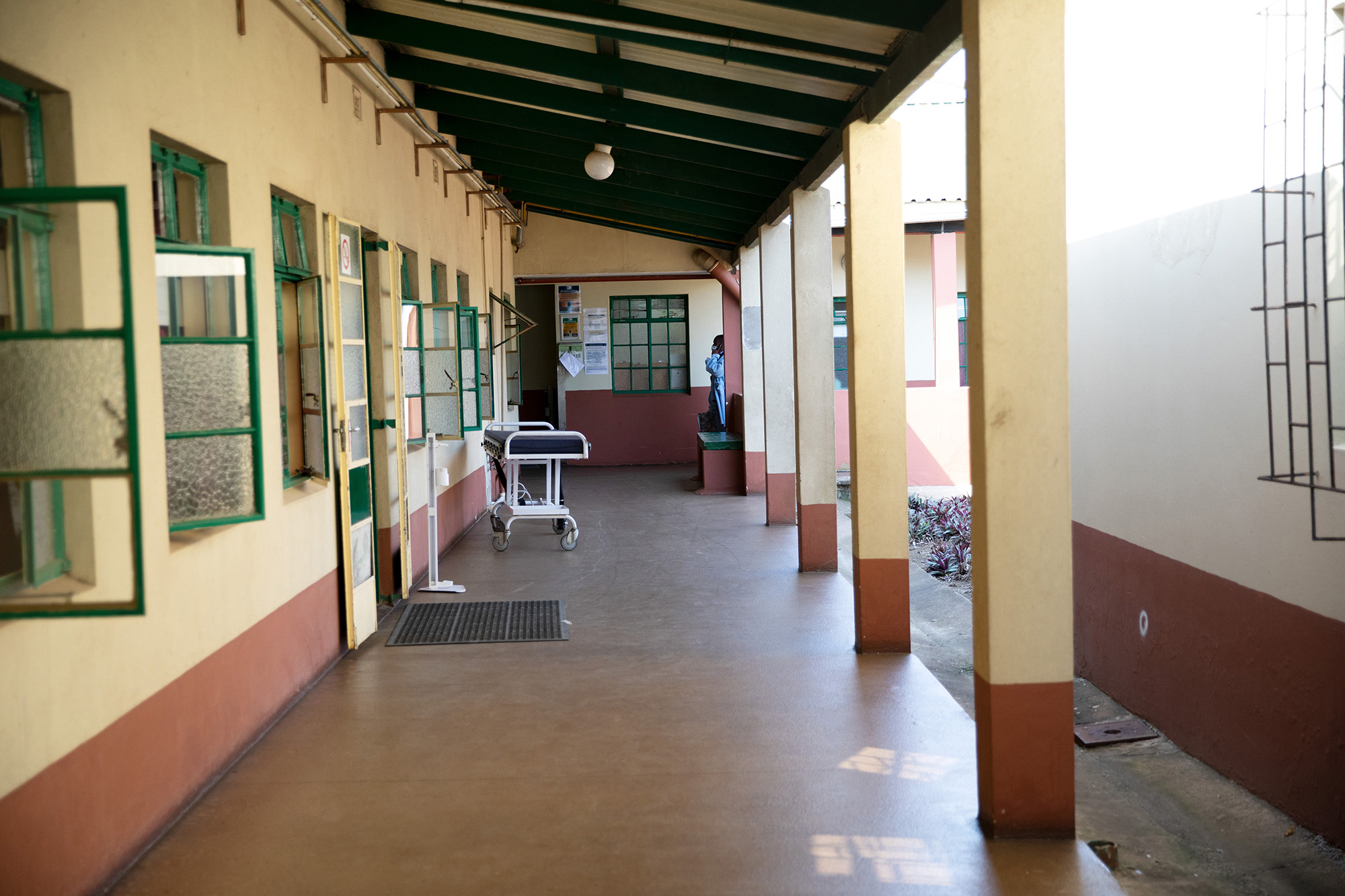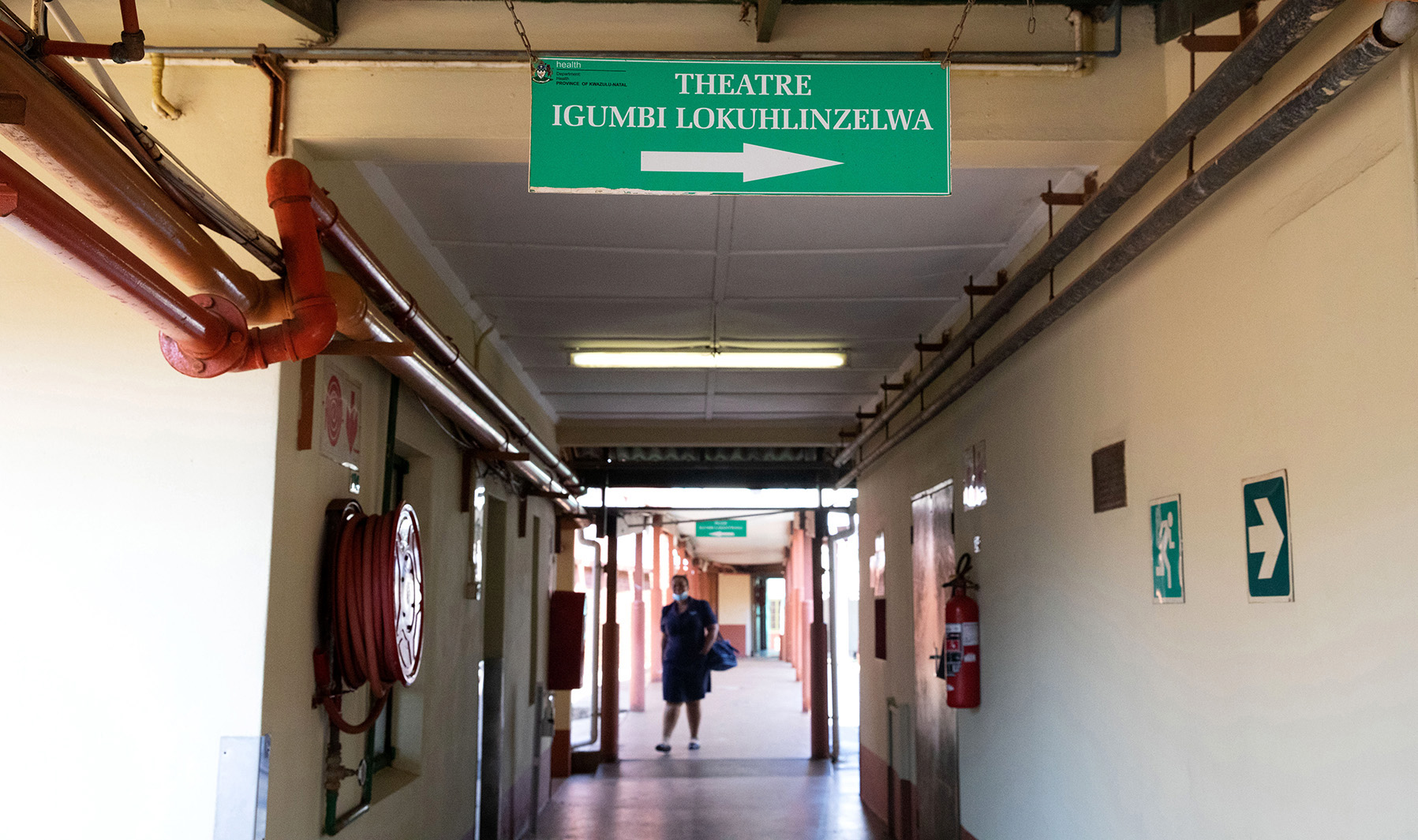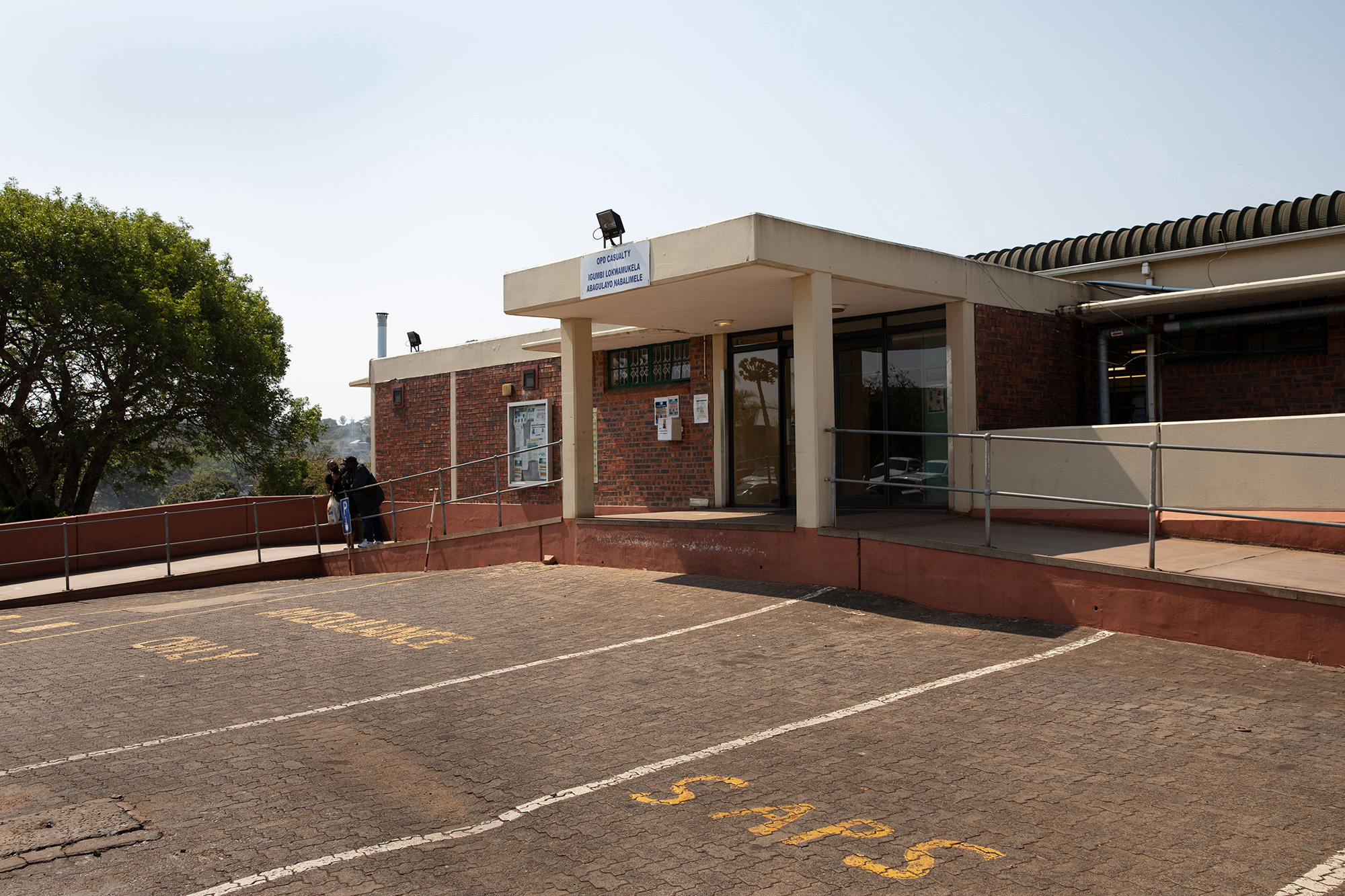BHEKISISA CENTRE FOR HEALTH JOURNALISM
Meet the healthcare workers who choose to live and work in SA’s poorest rural villages

Rural hospitals and clinics struggle to attract or retain senior healthcare professionals. Health workers who grew up in rural towns can plug the gap as they are more likely to work at remote facilities than their urban counterparts.
Nomkhosi Mkhwanazi (35) is sitting in her office at Hlabisa Hospital in the small rural settlement in KwaZulu-Natal that this district healthcare facility is named for, about three hours’ drive north of Durban.
She’s a dietician – the only one at the hospital.
Mkhwanazi grew up in Hlabisa and has spent most of her life here.

Nomkhosi Mkhwanazi, 35, is the only dietitcian at Hlabisa Hospital in Hlabisa, a small rural settlement in KwaZulu-Natal, about three hours’ drive north from Durban.
(Photo: Dylan Bush / Bhekisisa)
She’s also one of around 500 health workers who the Umthombo Youth Development Foundation has helped to study health science since 1999. Like Mkhwanazi, the students are from poor, rural backgrounds and get funded and mentored during their studies.
In return, they’re expected to work at the hospitals in (or near) the towns or villages they grew up in after graduating, for the same number of years that the foundation supported them.
Mkhwanazi was contractually compelled to work in the Hlabisa area for four years, but she’s stayed for far longer. This month, she will have worked here for nine years.
In fact, her desire to help people in her community is what drove her to become a dietician in the first place.
“I always wanted to come back and work here,” Mkhwanazi says. “Before I became a dietician, I was a student nurse here at the hospital. I noticed that many patients didn’t gain weight due to their illnesses or because they struggled to afford food.”
Dieticians provide such patients with evidence-based advice on what kinds of foods they should eat. “If patients are too ill to keep food down, dieticians prescribe the appropriate nutritional supplements,” Mkhwanazi adds.
If the patients that Mkhwanazi was seeing lived in cities such as Cape Town or Durban, they would likely have had a choice of dieticians to consult at public hospitals.
But here in Hlabisa, things are different.
“There wasn’t a single permanent dietician at the hospital until I started working here in 2013,” Mkhwanazi says. “So I decided to study dietetics and then come back to serve my community.”
Visit Daily Maverick’s home page for more news, analysis and investigations
Doctors raised in rural areas are more likely to work there
Mkhwanazi’s story reveals why Umthombo was set up.
People who grew up in rural towns are far more likely than their urban counterparts to take up jobs in rural clinics and hospitals, where they’re desperately needed.
A 2019 study that tracked medical students from Wits University, for instance, showed that five years after graduating, doctors who were raised in rural areas were almost five times more likely to be working in rural hospitals than those who hailed from cities.
Research from other South African medical schools has found similar results. So what about Umthombo’s own data?
A 2015 study showed that almost 95% of the 185 health science students who had graduated by 2013, honoured their contracts and worked back the full period they were supported for at a rural health centre, or were in the process of doing so. And of those who had completed their obligations, 71% stayed on in these areas afterwards.
The foundation’s graduates take skills that rural hospitals and clinics struggle to attract to or retain at those facilities, a 2021 study, published in BMC Health Services Research, found.
A health department report from 2011 shows that of the 1,200 medical students who graduated each year, only 3% ended up working in rural areas 10 to 20 years later. There’s no new health department data, but a 2019 study that tracked doctors who graduated at Wits between 2007 and 2011 found that only 7% were working in rural areas.
This contributes to the huge mismatch in the degree of difficulty in getting healthcare in far-flung districts compared with those in the country’s urban areas.
But why do people who grew up in rural areas, and who now have the means to live anywhere in the country (or even emigrate), choose to work in small South African settlements — and often in under-resourced facilities?
To find out, anecdotally, Bhekisisa travelled to three hospitals in rural KwaZulu-Natal where Umthombo graduates now work. We spoke with 10 of them, each of whom grew up in these districts.
We also spoke to six Umthombo-supported medical students at the University of KwaZulu-Natal who come from deep rural communities, about their intentions to return.
Family & finances: The pros of life in a rural area
Many of the students and health workers who Bhekisisa talked to echoed Mkwhanazi’s reason for coming back to work in rural areas.
Knowing how deprived their communities are of decent health services is a big part of what drives them home.
Mthokozisi Gumede, a social worker at the Bethesda Hospital in Ubombo, a small village about four hours’ drive from Durban, says he feels great fulfilment to serve people who knew him growing up.
“Some people recognise me as that boy from that house in that village, and now they see that I’ve grown up and I’m giving back to my community.”
But economic considerations can play a role as well.
It’s a lot easier to save money while living in a rural place, where rent is cheaper than in the city, says Lungile Thwala, a social worker at Bethesda Hospital, where she’s been working since 2015. She grew up in the small town of Mbazwana, 60 kilometres away.
To make working in state hospitals in rural areas attractive, the health department also offers medical professionals an extra allowance — to the value of 8–18% of their basic monthly in some cases.
Many of the people Bhekisisa spoke to said that working in (or near) the rural settlements where they grew up makes it easier to see their families regularly.
“It’s important for me that I don’t have to travel long distances just to see my family,” Thwala mentions.

Doctor Thulani Ngwenya is the medical manager at Bethesda Hospital, about 80 kilometres away from Ingwavuma. (Photo: Dylan Bush / Bhekisisa)
The town next door
Most of the former Umthombo students approached their “giving-back” differently from Mkhwanazi: very few wanted to work in the exact same town they were raised in, preferring instead to work in neighbouring villages.
Lungile Njokweni, a physiotherapist at Hlabisa Hospital, says that “when patients come from the same town as the healthcare worker, they try to take advantage of them and demand special [medical] attention”.
Back at Bethesda Hospital, Gumede agrees: “In the healthcare profession, you’re trying to work according to ethical principles of fairness, but when people know you, they demand extra favours.”
In Durban, some of the medical students at the University of KwaZulu-Natal were also anxious about returning home.
One young trainee doctor, Sbonginkonzo Mncwango, said he’d prefer not to treat patients who he knows personally, as it might be awkward to learn intimate details about them.
Thulani Ngwenya had a similar concern when he started working in rural KwaZulu-Natal in 2013 after qualifying as a doctor. For him, it was always important to serve people in uMkhanyakude, the district municipality where he grew up and now works.
But he wanted a bit of distance from his hometown of Ingwavuma, a rural village close to KwaZulu-Natal’s northwestern tip, where the province borders Eswatini. Today, Ngwenya is the medical manager at Bethesda Hospital, about 80 kilometres from Ingwavuma.
“In my culture, a mother or grandmother would not feel comfortable being examined by someone they saw growing up,” he explains.
Smiling, Ngwenya says he will go back to his childhood village in time: “I just need the community to forget about me running naked in front of them as a child. Hopefully, then, they can comfortably be naked in front of me.” DM/MC
This story was produced by the Bhekisisa Centre for Health Journalism. Sign up for the newsletter.























Comments - Please login in order to comment.